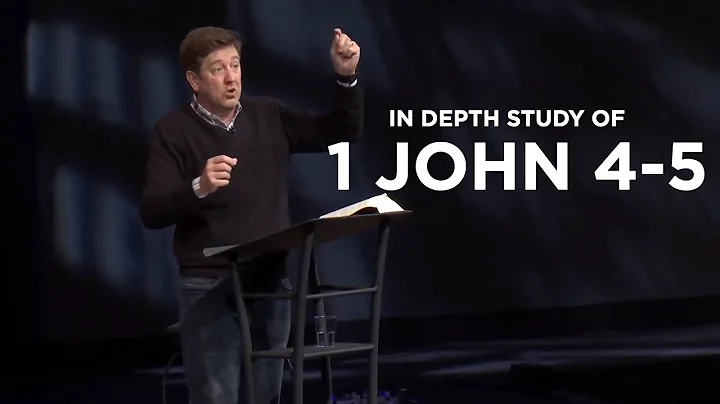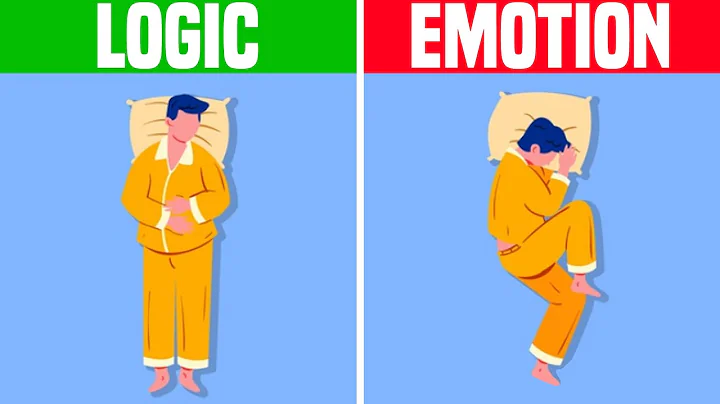Moisture vs. Protein: Benefits, Differences, and Ingredient Reading for Relaxed Hair
Table of Contents
- Introduction
- The Importance of Moisture for Relaxed Hair
- Signs that Your Hair Needs Moisture
- Selecting Moisture-Based Products
- Key Ingredients to Look for in Moisture-Based Products
- Examples of Moisture-Based Deep Conditioners and Moisturizers
- The Purpose of Protein for Relaxed Hair
- Signs that Your Hair Needs Protein
- Selecting Protein-Based Products
- Key Ingredients to Look for in Protein-Based Products
- Examples of Protein-Based Deep Conditioners and Leave-In Conditioners
- Why Relaxed Hair Needs Moisture
- Why Relaxed Hair Needs Protein
- Game: Guessing the Product Type Based on Ingredients
- Conclusion
Introduction
Welcome back to another video! In this article, we will discuss the importance of moisture and protein for relaxed hair. Many women on their relaxed hair journey often struggle with breakage and lack of results despite using numerous products. One common mistake they make is not understanding the balance between protein and moisture in their products. In this article, we will explore the difference between moisture-based and protein-based products, how to identify them, and the benefits they offer to your hair. So, let's dive in!
The Importance of Moisture for Relaxed Hair
Moisture plays a vital role in nourishing and hydrating relaxed hair. It helps improve softness, smoothness, and elasticity while enhancing detangling abilities. If your hair feels dry, tangled, rough, brittle, or breaks easily, it's a sign that your hair needs more moisture. To select the right products, you need to understand the ingredients and verbiage associated with moisture-based products.
Signs that Your Hair Needs Moisture
Dry, tangled, rough, and brittle hair are clear indications that your hair lacks moisture. If your hair easily snaps off with minimal manipulation, it's time to introduce more moisture into your regimen. Look for key words like "moisture-infused," "hydrates," "increases softness," and "prevents moisture loss" when selecting moisture-based products.
Selecting Moisture-Based Products
When searching for moisture-based products, pay attention to the ingredient labels. Look for ingredients like water (which should be the first ingredient), fatty alcohols, aloe vera juice, glycerin, panthenol, butters (cocoa butter, shea butter), honey, and various oils (coconut oil, avocado oil, olive oil). These ingredients will help hydrate and moisturize your hair.
Examples of Moisture-Based Deep Conditioners and Moisturizers
Let's take a look at some specific examples of moisture-based products. The Camille Rose Algae Renew Deep Conditioning Mask is a moisture-based deep conditioner that contains moisturizing ingredients such as water, aloe vera juice, butters, glycerin, and fatty alcohols. Another example is the Olive Oil Replenishing Conditioner by ORS, which is a moisture-based deep conditioner that contains water, butters, glycerin, fatty alcohols, and olive oil.
For moisturizers, the S Curl No Drip Curl Activator Moisturizer and the So Much Moisture by As I Am are excellent options. The S Curl moisturizer contains water, glycerin, fatty alcohols, propylene glycol, and oils like argan oil and olive oil. On the other hand, the So Much Moisture moisturizer contains water, glycerin, aloe vera, fatty alcohols, and bench ammonium methyl sulfate.
The Purpose of Protein for Relaxed Hair
Protein is essential for strengthening the hair, reducing breakage, and repairing damage. Relaxed hair, which has undergone a chemical process, is more vulnerable and weaker. Protein-based products help rebuild the cuticle layer, fill gaps in the hair shaft, and slow down water loss. However, it's essential to use protein in moderation and maintain a balance between moisture and protein in your hair regimen.
Signs that Your Hair Needs Protein
If your hair feels weak, limp, mushy, excessively stretchy, and struggles to hold a curl or shape, it's an indication that your hair needs protein. Additionally, dryness and breakage are signs that your hair requires strengthening and repair. Look for key words like "strengthens," "repairs damaged hair," and "rebuilds weak hair" when selecting protein-based products.
Selecting Protein-Based Products
When choosing protein-based products, focus on ingredients like amino acids, peptides, silk, keratin, collagen, oat, wheat, soy, and various vegetable and animal proteins. Hydrolyzed proteins, where the proteins are broken down into smaller molecules for better penetration, are particularly effective. Look for ingredients like hydrolyzed keratin, hydrolyzed collagen, and hydrolyzed silk.
Examples of Protein-Based Deep Conditioners and Leave-In Conditioners
Let's explore some examples of protein-based products. The ApHogee Two Minute Reconstructor is a protein-based deep conditioner that contains ingredients like hydrolyzed vegetable protein, hydrolyzed keratin, and collagen. Another product, ORS Hair Mayo, is a protein-based conditioning treatment that contains hydrolyzed collagen, silk amino acids, and egg powder.
If you are looking for a protein-based leave-in conditioner, the Jamaican Black Castor Oil Strengthen and Restore Leave-In Conditioner is a great choice. It contains hydrolyzed keratin, hydrolyzed vegetable protein, hydrolyzed rice protein, and a tetrapeptide.
Why Relaxed Hair Needs Moisture
Relaxed hair needs moisture because the chemical process alters the structure of the hair, making it more susceptible to dryness and dehydration. Replenishing moisture is crucial to maintain healthy and hydrated hair. Regular deep conditioning, moisturizing, and the use of leave-in conditioners are essential for replenishing moisture in relaxed hair.
Why Relaxed Hair Needs Protein
Protein is necessary for relaxed hair because the chemicals used during the relaxing process weaken the hair's structure. Protein-based products help strengthen the strands, rebuild the cuticle layer, and repair damaged areas. Regular use of protein-based deep conditioners and treatments can help maintain the strength and integrity of relaxed hair.
Game: Guessing the Product Type Based on Ingredients
Now, let's play a quick game to test your knowledge. I will mention some product names, and you have to guess whether they are moisture-based or protein-based products based on their ingredients.
- Camille Rose Algae Renew Deep Conditioning Mask: Moisture-Based
- ORS Olive Oil Replenishing Conditioner: Moisture-Based
- S Curl No Drip Curl Activator Moisturizer: Moisture-Based
- So Much Moisture by As I Am: Moisture-Based
- ApHogee Two Minute Reconstructor: Protein-Based
- ORS Hair Mayo: Protein-Based
- Jamaican Black Castor Oil Strengthen and Restore Treatment Mask: Protein-Based
Conclusion
Understanding the balance between moisture and protein is essential for maintaining healthy, strong, and beautiful relaxed hair. By identifying the signs that indicate your hair needs moisture or protein, reading and interpreting product ingredient labels, and selecting the right products, you can create an effective hair care regimen. Remember that every individual's hair is unique, so it's important to listen to your hair's needs and adjust your routine accordingly. So, happy hair journey, and may your hair always be moisturized and strengthened!







